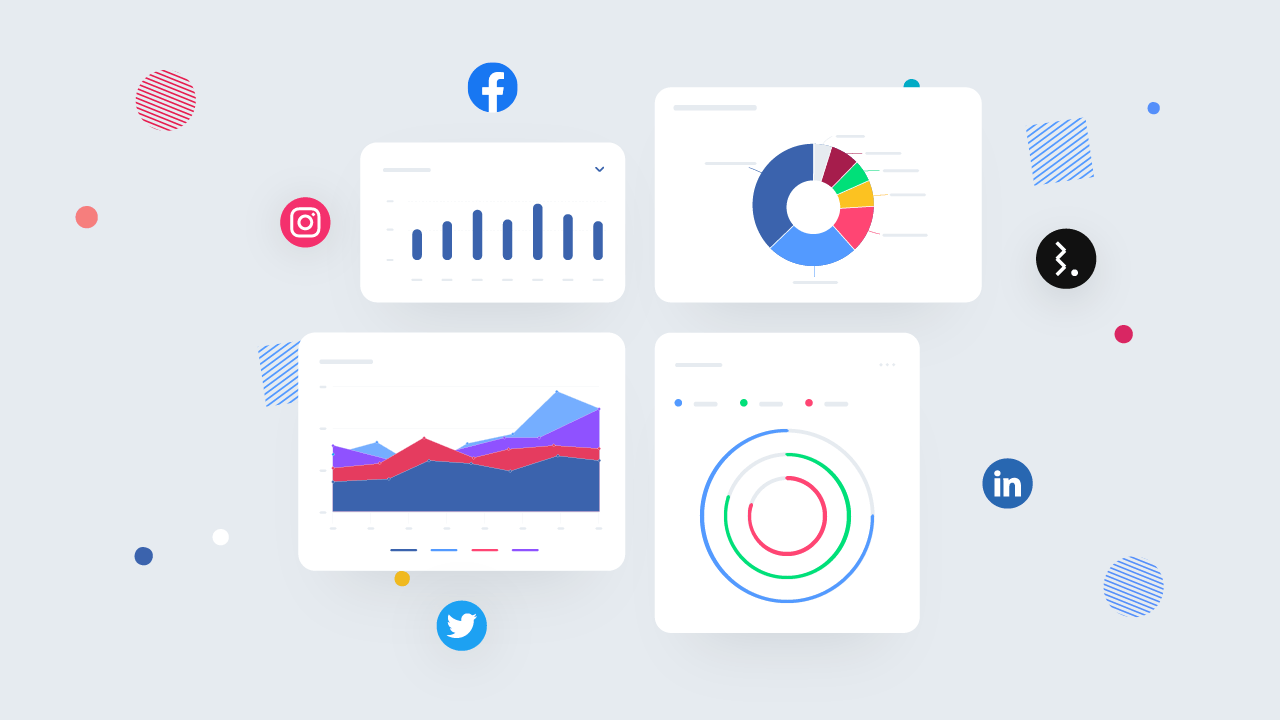Social media has become an indispensable component of digital marketing, and understanding its impact is crucial for businesses aiming to thrive in the online landscape. In this article, we delve into the realm of social media analytics reporting, unraveling the insights and strategies that can elevate your digital presence.
Key Metrics in Social Media Analytics Reporting

Before delving into the intricacies of social media analytics reporting, it’s essential to comprehend the key metrics that shape this landscape. Metrics such as engagement, reach, and impressions are the building blocks of a successful social media strategy. These metrics not only gauge the performance of your content but also directly impact your business goals.
Choosing the Right Social Media Analytics Tools
The market is flooded with social media analytics tools, each offering a unique set of features. From Google Analytics to Facebook Insights, the choices can be overwhelming. When selecting a tool, consider factors such as the platforms you use, the depth of analytics required, and the ease of use for your team.
Understanding Audience Insights
Audience insights form the bedrock of effective social media strategies. Analyzing demographic data helps tailor content to match the preferences of your audience. By understanding the demographics of your followers, you can create content that resonates, fostering stronger connections.
Tracking Conversions and ROI
While likes and shares are valuable, tracking conversions is paramount. Understanding how your social media efforts contribute to your business’s bottom line is crucial. Calculating return on investment (ROI) ensures that your resources are allocated effectively, maximizing the impact of your social media campaigns.
Real-time Reporting Benefits
In the fast-paced world of social media, real-time reporting is a game-changer. Being able to analyze data as it happens provides the agility needed to adapt strategies on the fly. Explore tools that offer real-time analytics to stay ahead in the dynamic social media landscape.
Competitor Analysis in Social Media
To outshine your competitors, it’s essential to understand their social media strategies. Conducting a thorough analysis allows you to identify gaps in their approach and capitalize on them. Learn from competitors’ successes and failures to refine your own social media strategy.
Content Performance Analysis
Not all content is created equal, and analyzing the performance of different types of content is key. Dive into the data to understand what resonates most with your audience. This insight enables you to fine-tune your content strategy, focusing on what generates the most engagement.
Social Listening and Sentiment Analysis
In the age of social media, listening to what your audience is saying is crucial. Utilize social listening tools to monitor conversations around your brand and industry. Additionally, sentiment analysis helps gauge the mood of your audience, aiding in brand reputation management.
Challenges in Social Media Analytics Reporting
While social media analytics reporting offers valuable insights, it comes with its set of challenges. Data accuracy and interpretation can be stumbling blocks. Addressing these challenges requires a meticulous approach, ensuring that decisions are based on reliable information.
Future Trends
As technology evolves, so does social media analytics. Stay abreast of emerging trends, such as artificial intelligence and machine learning. These innovations are poised to revolutionize social media analytics, offering deeper insights and more sophisticated strategies.
Tips for Improving Social Media Analytics Skills
Mastering social media analytics is an ongoing process. Continuous learning and staying updated with the latest tools and trends are paramount. Practical tips, such as setting clear objectives and experimenting with different strategies, can accelerate your journey to becoming a proficient social media analyst.
Integration with Overall Marketing Strategy
Social media analytics should not exist in isolation. Integrate your social media insights with your broader marketing strategy. Ensure synergy between different marketing channels to create a cohesive and effective overall approach.
Conclusion
In conclusion, social media analytics reporting is not just a tool; it’s a powerful ally in navigating the digital landscape. By understanding and harnessing the insights provided by social media analytics, businesses can make informed decisions, refine their strategies, and ultimately drive success in the competitive online world.
Ready to take your social media analytics to the next level? Request a demo from AIM Technologies and explore how our cutting-edge solutions can empower your business. Uncover the full potential of your social media strategies with AIM Technologies.
FAQs
Why is social media analytics reporting important for businesses?
- Social media analytics reporting provides valuable insights into the performance of digital strategies, helping businesses make informed decisions and maximize their impact.
How often should social media analytics be reviewed?
- Regular reviews, at least monthly, are recommended to stay updated on the performance of social media efforts and make timely adjustments.
What are the common challenges in social media analytics reporting?
- Challenges include ensuring data accuracy, interpreting metrics correctly, and addressing the dynamic nature of social media.
Are there free social media analytics tools available?
- Yes, several free tools like Google Analytics and Facebook Insights offer robust social media analytics features.
How can businesses use social listening for brand management?
- Social listening helps businesses monitor conversations around their brand, allowing them to respond proactively to customer feedback and manage their online reputation effectively.


